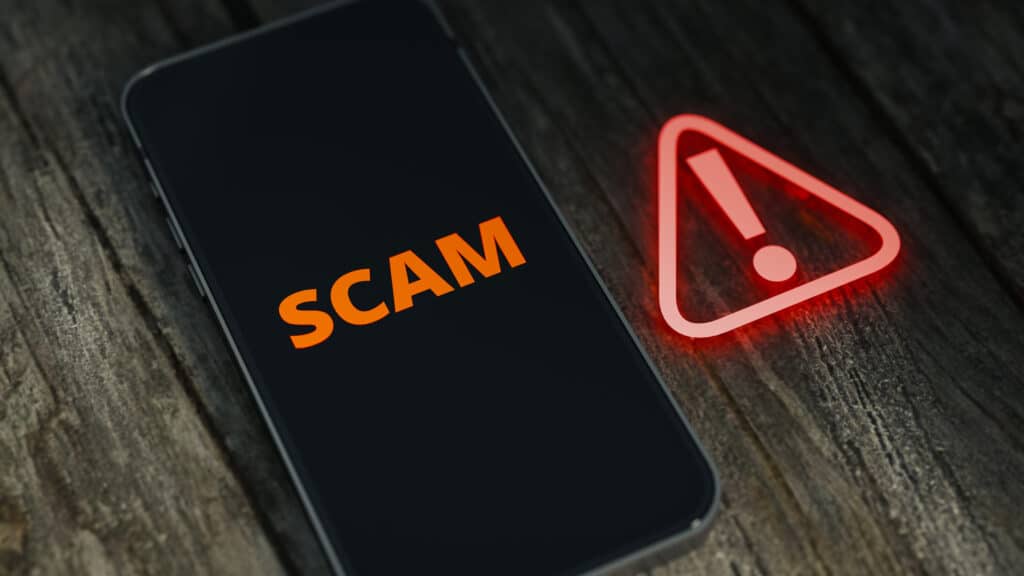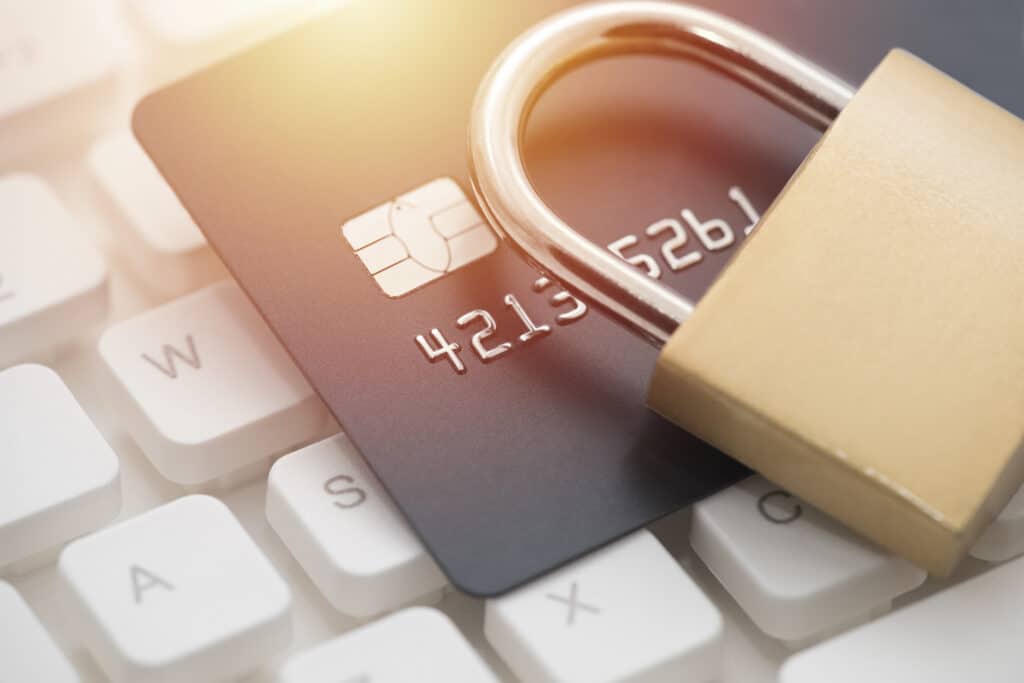In an article printed in November 2023, the Ministry of Business, Innovation and Employment reported that 11 of New Zealand’s largest financial institutions reported a combined loss of 198 million dollars due to scams, with what can only be believed to have increased since then.
Unfortunately, investment scams are very common in today’s world. Many fraudsters offer high returns that are too good to be true and that are said to carry ‘very little risk‘. The promise of something as lucrative often lures unsuspecting individuals into parting with their hard-earned money.
Protecting yourself from becoming a victim is essential to any savvy investor looking to grow their portfolio. Knowing the ‘red flags‘ and how to spot them will give you the tools to successfully navigate the financial world and protect your finances.
What is an Investment Scam?
It’s a fraudulent scheme to deceive individuals into investing their finances in a fake or valueless venture. Scammers often convey a sense of urgency with intended victims and promise incredibly high returns to encourage them even further to part ways with their money.

10 Signs of an Investment Scam
- Unrealistic Returns: Often, the deals offered are too good to be true, with high returns and little to no risk.
- Pressure Tactics: Scammers have become increasingly talented at convincing unsuspecting individuals with a sense of urgency and clever sales tactics. They outrush their victims into making decisions in haste without undertaking thorough research into the ‘venture’.
- Unsolicited Offers: Avoid unsolicited offers via social media, phone or email.
- Lack of Transparency: If the information you receive regarding underlying assets, fees, and risks is unclear or vague, it’s likely a scam. Reputable investment agencies will always provide you with in-depth, clear information highlighting all the essential details, including their financial products, shares, and rules, so as not to deceive investors.
- Seeking Personal Information: Your sensitive information should not be asked for upfront. Something that legitimate firms do not do.
- Unspecified Payment Requests: You don’t see a ‘normal‘ bank listed. Scammers generally avoid using mainstream financial institutions and prefer to have money wired, paid via credit card, banked with an offshore bank or paid using cryptocurrency. Be aware of scammers asking you to make unusual payments to NZ banks that hold different details from those of the company they say they represent.
- Constant Requests for Funds: Scam victims are pressed for more money and coax an individual into thinking that a sale can only progress if you make more investment purchases or that fees and taxes still need to be settled.
- Declaring Profits Made Before Payment: Scammers love to claim that you’ve already made a profit even though you have not paid any funds. This is to lure you into paying a deposit upfront. Reputable, trusted investment companies generally will not let you make any investments on credit.
- Listed with the FMA as a Scam: The Financial Markets Authority updates its list regularly, and to provide extra security, every investor should be encouraged to stay updated. Beware, though, scammers do change their names. Practice caution even if their name does not appear on the FMA list. See the list via the FMA Warning and Alerts webpage.
- Failure to Pay Out: Foreign exchange and shares can often be sold in a few hours or days, and generally, investors can receive some, if not all, of their funds back promptly. The only exceptions are shares that no other investor wants to purchase and those sold beyond licensed markets, which can take longer to sell. Anytime you wish to invest, you should do so through a licensed institution.

How to Avoid Investment Scams
- Research: Always do your research before making any financial commitments. Check a company’s reputation, regulatory status and licensing.
- Consult with a Financial Advisor: When in doubt about a company’s claims, it’s crucial to seek the advice of a financial advisor. Their professional assessment can help you avoid potentially risky investments.
- Trust your Instincts: If something doesn’t feel right, it probably isn’t worth your while. If you feel unsure or worried, walk away from suspicious offers.
- Safeguard your Personal Information: Avoid giving your personal and financial information to unsolicited parties.
Types of Investment Scams
- Ponzi Schemes: These scams pay returns to investors using money from new investors, not from real profits. David Ross of Ross Asset Management was jailed over NZ’s largest ever Ponzi scheme, with investors losing around $115 million. In 2013, Ross was jailed for 10 years and 10 months.
- Pyramid Schemes: These schemes need new members to join to make money for people who joined earlier. For example: In April 2024, Shelley Rose Cullen, a promotor of Lion’s Share (one of the biggest pyramid schemes in New Zealand), was convicted of five charges made against her by the Commerce Commission under the Fair Trading Act. Lion’s Share was responsible for approximately 150,000 participants worldwide losing a total of almost $NZ17 million, the Commerce Commission said. Pyramid schemes like these are illegal in New Zealand under the Fair Trading Act.
- Forex Scams: Scammers promise significant gains from foreign exchange trading but often manipulate prices or embezzle money.
- Cryptocurrency Scams: Involve fake cryptocurrency investments or initial coin offerings (ICOs).
- Phishing Scams: Cybercriminals use fake emails or websites to steal personal and financial information.
- Asset Recovery Scams: Target people who’ve already lost money by offering to get it back for a fee but end up stealing more.
- Imposter Scams: Con artists pose as well-known investment companies or claim oversight to con you into putting money into made-up products.
- Binary Options Scams: Websites rig outcomes to make sure you lose cash on these risky, “win-or-lose” guesses on asset values.
- Term Deposit Scams: Criminals set up fake bank accounts with high interest rates to rob you. They copy real banks to look trustworthy.
- Software Packages, Seminars and Course Scams: Sell pricey tools that promise quick investment wealth but give nothing useful.
- Boiler Room Scams: Involve high-pressure sales tactics to lure victims into non-existent or worthless investments, often through cold calls and false promises of high returns.
- Share Scams: Fraudulent offers to invest in non-existent or overvalued companies, or to sell shares at inflated prices in exchange for upfront fees.

Investment Scam FAQ
I Think I’m Being Scammed – What Should I Do?
- Do not assume it’s a safe investment option because you know the individual (friend or colleague). This goes for thinking that a company is credible because it appears online, has a website, or advertises in a magazine or newspaper; this also applies to ‘celebrity endorsements‘ or ‘social media influencers’.
- Are there any disparities in their details and banking information? This could be a scam if they say they are calling from New Zealand but are banking offshore.
- Use WHOIS to verify a company’s website registration details. This can reveal crucial information about the company’s legitimacy, such as the country of registration and the website’s launch date.
- Always request a Public Disclosure Statement (PDS) for any investments. This is a standard requirement for reputable investments in NZ and can provide you with vital information about the investment.
- Look up the organisation on the Financial Services Providers Register here in NZ. If the company does not appear on the list, it is not permitted to provide financial services. Registering requires providing a physical address, and companies are subject to criminal checks.
Action Plan: Act by only communicating by email and getting everything in writing, including a summary of your investments if you’ve made any. Secondly, stop paying any funds, even if they make promises. Finally, ask to gain access to your money as a ‘personal emergency‘ has arisen. If they don’t pay the funds, can’t trade, or say that additional fees are needed to get your money out, then it’s probably a scam.
Top Tip: Visit the NZ Marketing Association and list your information on the Do Not Call and Do Not Email register; this does not stop scammers entirely but provides another layer of security.
I Have Been Scammed – What Should I Do?
- One of the first steps is to update passwords for all your accounts. This is an important step to stop further damage.
- Report the scam to your bank or credit card company immediately. If you’ve made payments using other financial organisations, then contact them.
- Keep a close eye on your financial statements regarding any unauthorised activity.
- Consult with a financial advisor or legal professional.
- Do not make ANY contact with the scammer via phone (hang up) or email (do not reply).
How Do I Report a Scam?
In a report by Netsafe, over 68% of Kiwis said they are (very) confident that they can recognise a scam, and 62% said they encounter more than one scam per month. With figures like these, it is important to know who to contact if you fall prey to a scam.
- Department of Internal Affairs: They list a variety of scams such as postal, text, email, phone and fax scams. To report a scam, visit their website and complete the relevant form. For text message-related scams, forward them to the FREE shortcode 7726 (SPAM). Alternatively, email scam@reportspam.co.nz to complain about any unsolicited fax, text, or email messages.
- New Zealand Police: Investigate financial-related crimes and give tips on how to tell authorities about an investment con. Call 111 only for emergencies that need an immediate response; otherwise, call 105 for non-emergencies.
- Computer Emergency Response Team New Zealand (CERT NZ): Help with online crime matters, including getting back lost money and keeping your internet information safe.
- Netsafe: Give advice and help for internet cons, including how to avoid scams and what steps to take if you’ve fallen for one. Report any online crime via their helpful online form.
- Financial Markets Authority (FMA): This agency monitors money markets and can provide information about cons and help people recover what they’ve lost.
- Victim Support: This agency provides emotional support and hands-on help to people who’ve been scammed. Call them on 0800 842 846 or visit their website for more information.
Can Funds Lost to an Investment Scam Be Recovered?
While some financial institutions may refund money lost to a scam, it’s not a guarantee. The chances of recovery depend on several factors, such as reporting the scam, policies, the type of scam, method of payment, and locality (national or international).
Am I at Risk if I Report an Investment Scam?
No, you are not at risk for reporting an investment scam. Reporting a scam is essential in helping other individuals avoid becoming another victim of scammers. Scammers are known to intimidate individuals if they intend to report the crime. Ignore these threats, as they are designed to stop you from bringing attention to these illegal activities.

Quick Fact Guide
- You cannot sell financial products in New Zealand via uninvited emails or ‘cold calling‘.
- If you receive a call from out of the blue regarding an investment opportunity, avoid it, as it could be a scam or fraud.
- Don’t recognise the area code, contact number, or company a person is calling from regarding a financial service or product? Instead, suggest calling them on a trusted phone line to confirm who they are and avoid dealing with an imposter.
- If you are receiving a lot of calls or emails from someone and believe you are being scammed, block them or ask your service provider to do it for you.
- International online investment companies are more challenging to regulate.
- If you have been embroiled in an offshore investment scam, the money you’ve lost is often unretrievable.
- Financial service providers must provide you with information on a dispute resolution scheme.
Top Tip: Suspect that someone is trying to scam you? Search for the address on Google Maps. This will show you a map, locations, reviews, and images if they are available. Once you have sourced the address, use the ‘street view’ button to view a 360-degree view of the location. This can be incredibly helpful in verifying the legitimacy of an establishment and the surrounding area. Search for any additional information, such as business name, operating hours, and contact information. Note that while this is a helpful tool, it cannot be relied solely on to verify information, do your research, and take extra care when investing your money.
Helpful Resources
- Could this be a Scam by Consumer Protection
- Little Black Book of Scams by Sorted and Netsafe
- Scam Checker by Own Your Online
- Pyramid Selling Scheme Factsheet by the NZ Commerce Commission
- 2024 Cyber Security Report by CERT NZ
Invest with Confidence
Investment scams are rising, so partnering with a safe, reliable financial institution is crucial.
MoneyShop provides secure, transparent peer-to-peer lending. It allows investors to earn competitive returns while supporting New Zealanders in reaching their financial goals.
Invest wisely with MoneyShop!



